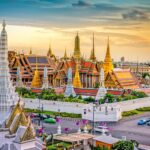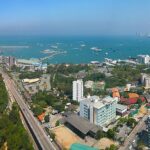Chiang Mai
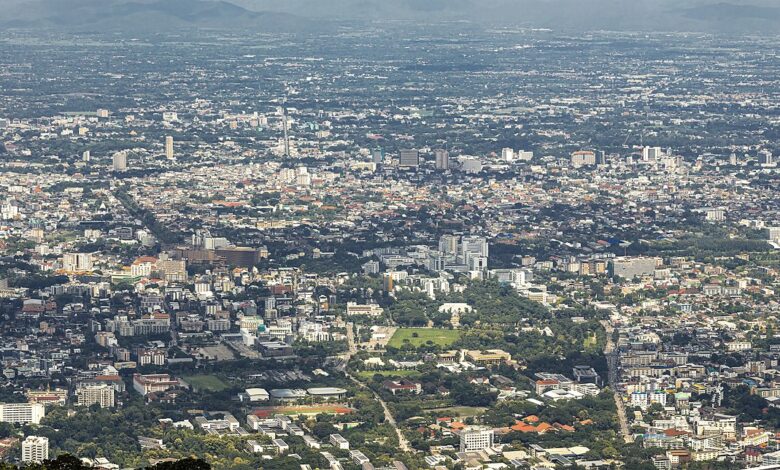
Chiang Mai (Chiengmai or Chiangmai), the largest city in northern Thailand and the third-largest in the nation, holds a significant place in both historical chronicles and contemporary allure. It is 700 km (435 mi) north of Bangkok in a mountainous region called the Thai highlands and has a population of 1.2 million people as of 2022, which is more than 66% of the total population of Chiang Mai province (1.8 million).
Chiang Mai, which translates to “new city” in Thai, was established in 1296 to serve as the new capital of Lan Na, replacing the previous capital, Chiang Rai. Its strategic position along the Ping River, a significant tributary of the Chao Phraya River, and its close proximity to key trade routes played a pivotal role in its historical significance.
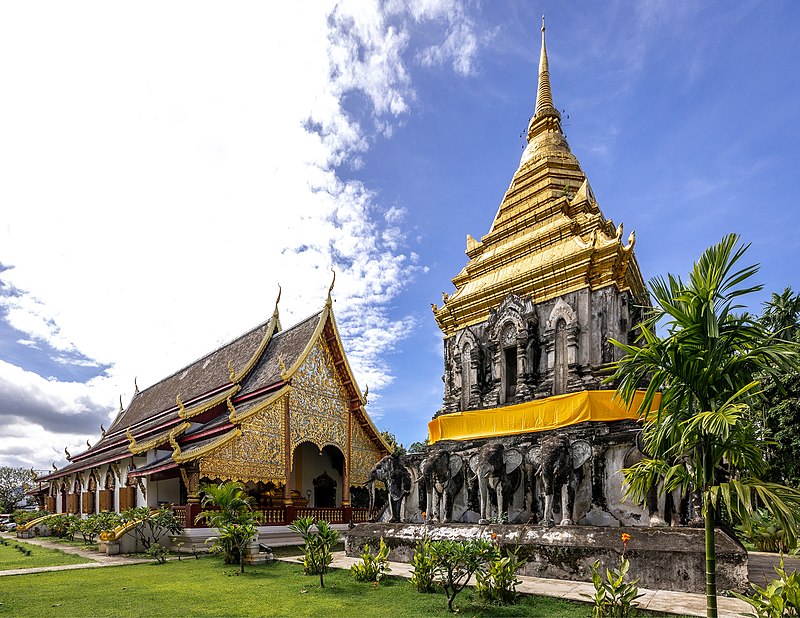
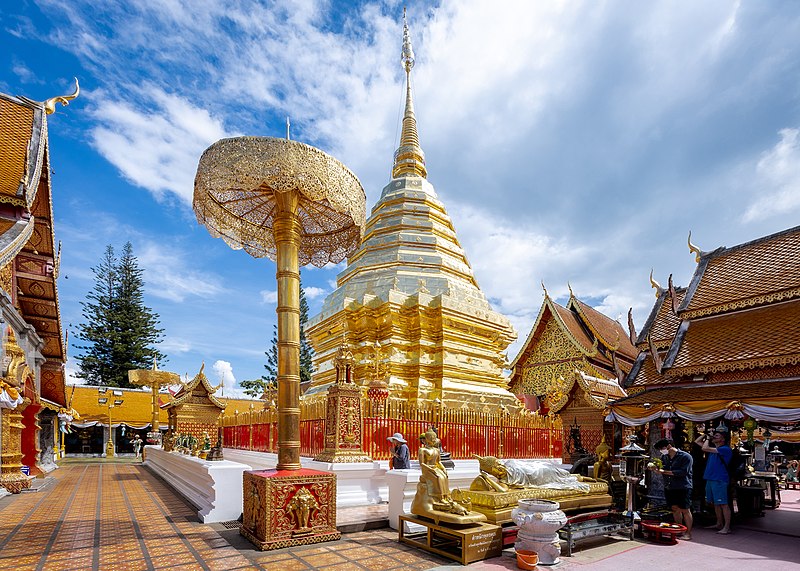
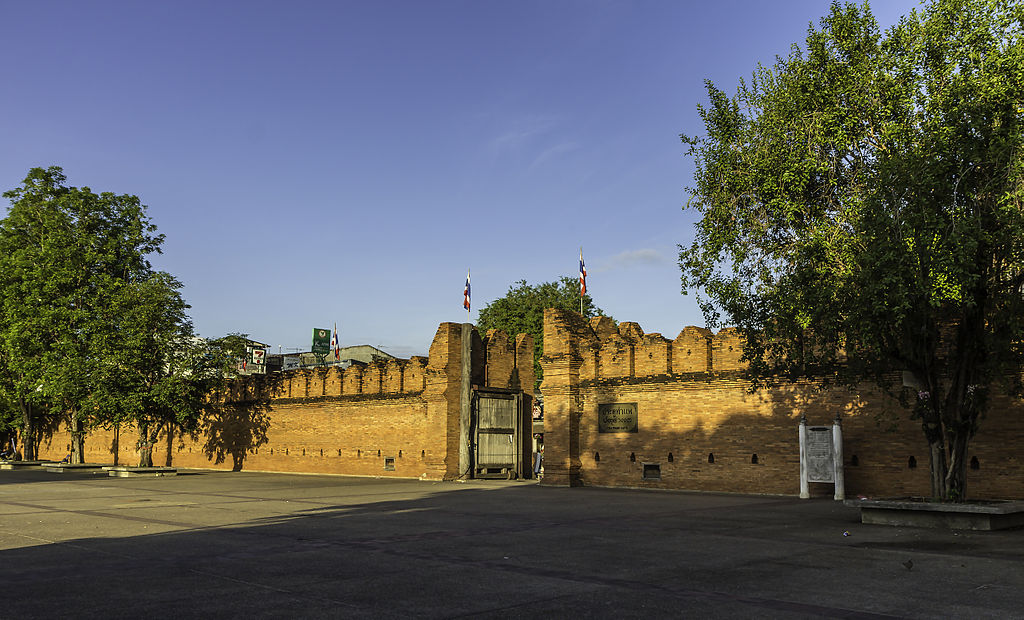
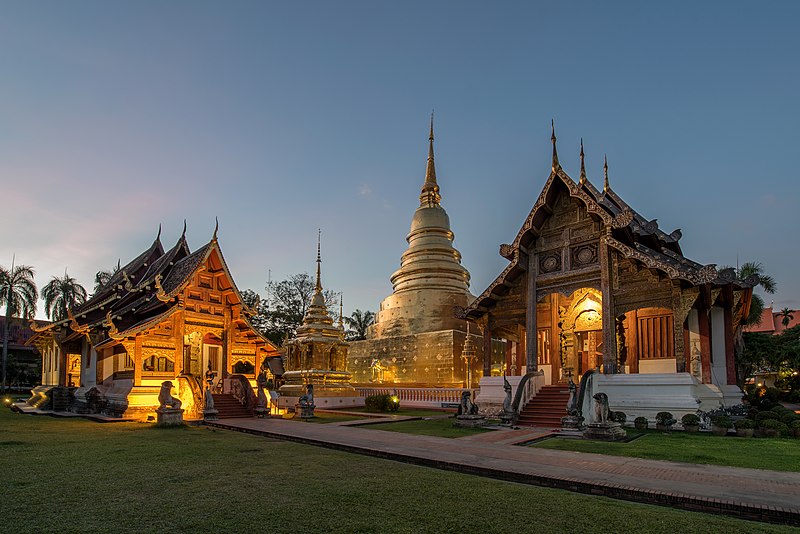
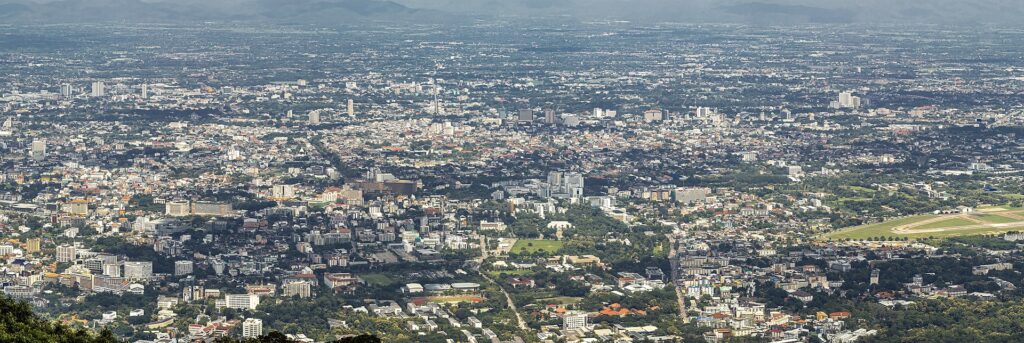
| ID |
|---|
| 106474 |
| Name |
| Chiang Mai |
| State ID |
| 3491 |
| State Code |
| 50 |
| State Name |
| Chiang Mai |
| Country ID |
| 219 |
| Country Code |
| TH |
| Country Name |
| Thailand |
| Latitude |
| 18.79038000 |
| Longitude |
| 98.98468000 |
| WikiData ID |
| Q52028 |
Map view
Historical Background
Chiang Mai traces its origins back to the 13th century when it was established as a royal residence in 1292 and later evolved into a thriving town by 1296. Serving as the capital of the Lanna Thai kingdom, it flourished until its fall to Myanmar in 1558.
Despite subsequent foreign invasions, including by the Siamese in 1774, Chiang Mai managed to maintain a degree of independence until the late 19th century when it became more closely integrated with Bangkok.
Geographical Features
Nestled in a picturesque intermontane basin at an elevation of 1,100 feet, Chiang Mai sits gracefully on the banks of the Ping River, a vital tributary of the Chao Phraya River. Its strategic location contributes to its prominence as a regional center.
The serene waters of the Ping River meander through the city, bestowing fertile lands and sustaining agricultural activities. This basin, surrounded by lush hills and mountains, creates a scenic backdrop for Chiang Mai’s urban landscape.
Cultural Significance
Religious Importance
Chiang Mai stands as a bastion of Buddhist heritage, adorned with magnificent temples and pagodas that echo its spiritual legacy. The city’s religious sites, including the revered Wat Phra That Doi Suthep, draw pilgrims and tourists alike, offering glimpses into Thailand’s sacred traditions.
Economic and Educational Hub
Beyond its spiritual realm, Chiang Mai thrives as an economic, educational, and cultural nucleus in northern Thailand. It serves as a bustling marketplace, a hub for learning and innovation, and a melting pot of diverse cultures.
Architectural and Tourist Attractions
Old Town and Walled Settlement
The enchanting old town, with its well-preserved walls and moats, transports visitors back in time to the medieval era. Amidst narrow alleys and charming lanes, ancient temples and historic landmarks await exploration, narrating tales of bygone eras.
Wat Phra That Doi Suthep
Perched atop the majestic Mount Suthep, Wat Phra That Doi Suthep stands as an epitome of architectural grandeur and spiritual sanctity. The gleaming golden chedi and panoramic vistas from this revered site offer visitors a sublime experience of tranquility and reverence.
Other Temples and Monuments
Chiang Mai boasts a plethora of temples and monuments, each a testament to its rich cultural heritage. From the revered Wat Phra Sing to the majestic ruins of Wat Chedi Luang, these sacred sites encapsulate centuries of devotion and artistic mastery.
Handicrafts and Artisans
The region surrounding Chiang Mai is renowned for its vibrant handicrafts and artisanal traditions. Quaint villages specialize in intricate crafts such as silverwork, wood carving, pottery, and lacquerware, preserving age-old techniques passed down through generations.
San Kamphaeng, to the east of Chiang Mai, emerges as a hub of traditional Thai silk weaving, where skilled artisans transform raw silk into exquisite fabrics. Visitors can witness the meticulous process of silk production and acquire exquisite souvenirs to cherish.
Educational Institutions
Chiang Mai’s educational landscape is enriched by prestigious institutions like the Northern Technical Institute, Maejo Institute of Agricultural Technology, and Chiang Mai University. These centres of learning foster innovation, research, and intellectual growth.
In addition to academic pursuits, Chiang Mai hosts various research centres and projects addressing regional and global challenges. From tribal studies to agricultural advancements, these initiatives contribute to the city’s intellectual vitality and societal development.
Transportation and Connectivity
Railway, Road, and Air Links
As a pivotal transportation hub, Chiang Mai is well-connected by rail, road, and air networks. The railway links it to Bangkok and southern Thailand, while an extensive road network facilitates seamless travel within the region. Moreover, its international airport ensures global accessibility for travellers.
International Airport
Chiang Mai’s international airport serves as a gateway to northern Thailand, welcoming visitors from around the world with its modern facilities and efficient services. The airport’s strategic location enhances Chiang Mai’s prominence as a premier tourist destination and business hub.
Unique FAQs
- Is Chiang Mai suitable for family vacations?
- Absolutely! Chiang Mai’s family-friendly attractions, cultural activities, and serene surroundings make it an ideal destination for a memorable vacation with loved ones.
- What are some must-visit temples in Chiang Mai?
- While every temple holds its charm, Wat Phra That Doi Suthep, Wat Phra Sing, and Wat Chedi Luang are among the most revered and visually stunning ones worth visiting.
- How can I experience Chiang Mai’s local culture and traditions?
- Exploring the bustling markets, participating in traditional craft workshops, and attending cultural festivals are excellent ways to immerse yourself in Chiang Mai’s vibrant heritage.
- Is it safe to travel to Chiang Mai?
- Chiang Mai is generally considered safe for tourists. However, it’s advisable to exercise standard precautions and stay informed about any travel advisories or local regulations.
